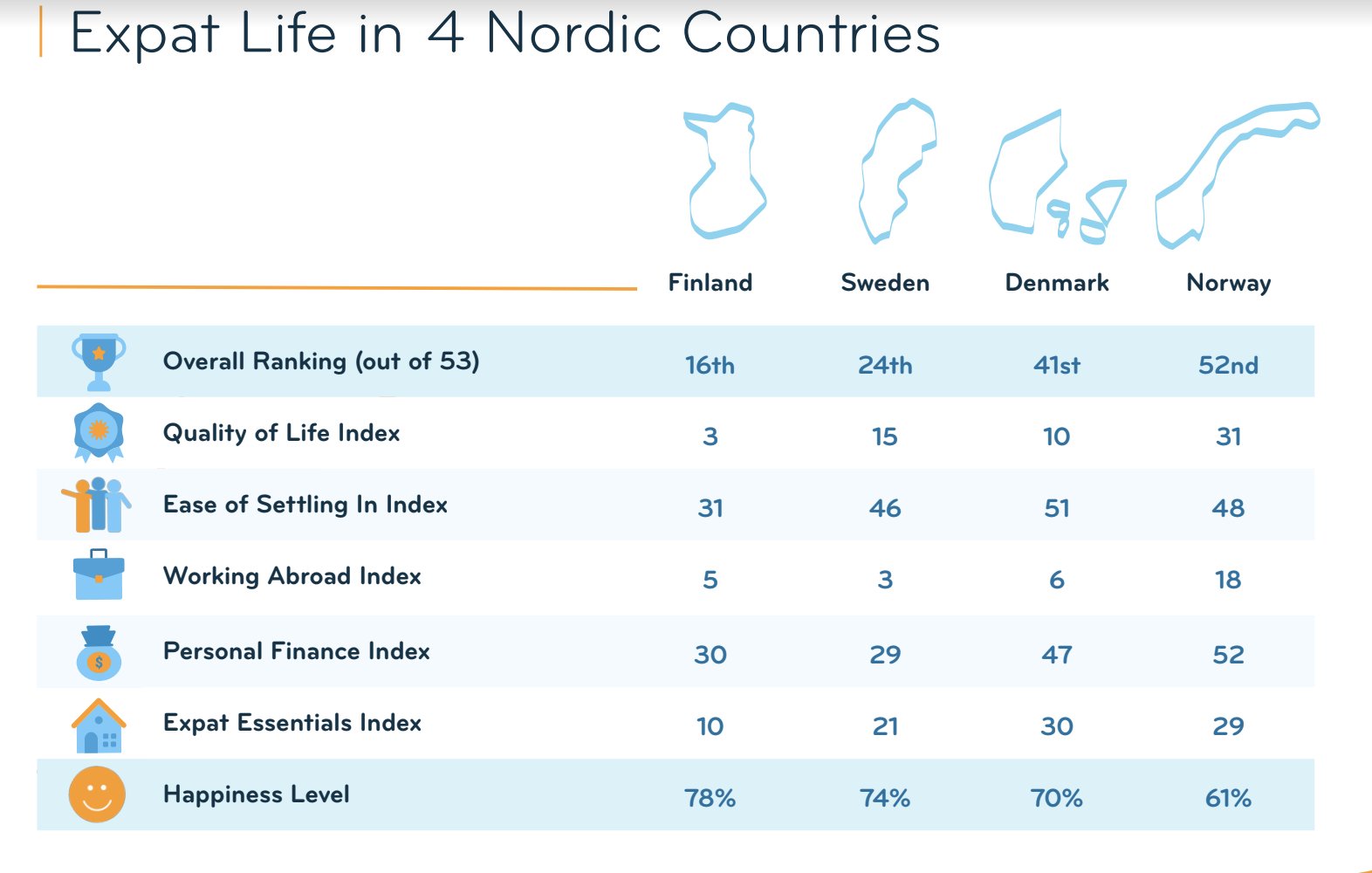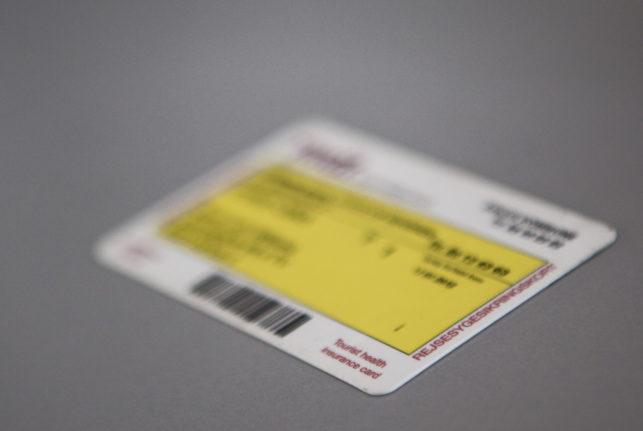Denmark ranked 51st out of the 53 destinations surveyed as part of the InterNations Expat Insider survey when it came to the Ease of Settling In Index (see below).
It was placed in the bottom ten globally for every subcategory and factor in this index.
Notably, Denmark ranked last in the Finding Friends subcategory, ranking 53rd. The survey also revealed that 66 percent of those surveyed found it challenging to make local friends, compared to the global average of 36 percent.
Additionally, 38 percent of foreign residents rated their social life negatively, while globally, the figure stood at 25 percent.

The survey findings shed light on the struggle international residents face in adapting to the local culture in Denmark, with 35 percent expressing difficulty in acclimating, compared to the global average of 18 percent.
Furthermore, 29 percent of those foreign residents surveyed stated they did not feel at home in Denmark, surpassing the global average of 20 percent.
An expensive country
Denmark ranked 30th in the Expat Essentials Index. The country excelled in the Digital Life category, securing the second position globally. It was particularly praised for its ease of cashless payments and unrestricted access to online services.
However, Denmark faltered in the Housing category, ranking 45th. Expats reported challenges in finding affordable housing (44 percent were discontent, compared to 31 percent globally) and high living costs (58 percent were discontent, compared to 42 percent globally).
These high costs also contributed to Denmark’s position in the bottom 10 in the Personal Finance Index (47th), with 56 percent of expats reporting dissatisfaction with the cost of living in the country. In comparison, the global average was 35 percent.
Overall ranking
Overall, Denmark secured the 41st position out of 53 destinations surveyed. While it performed exceptionally well in certain areas, it also found itself in the bottom 10 for two indices.
In the Working Abroad Index, Denmark ranked an impressive 6th globally. Those surveyed expressed high satisfaction with the state of the economy (89 percent reported satisfaction, compared to 62 percent globally) and their working hours (80 percent were satisfied, compared to 64 percent globally).
They also appreciated the local business culture, which fosters creativity (67 percent were satisfied, compared to 51 percent globally), promotes independent work (77 percent vs 46 percent globally), and supports flexibility (83 percent were satisfied, compared to 60 percent globally).
Strong quality of life
In the Quality of Life Index, Denmark secured the 10th position globally.
The country ranked first in the availability of green goods and services, with 87 percent of foreign residents reporting satisfaction in this area, surpassing the global average of 65 percent.
Denmark also performed well in other categories, such as the urban environment (3rd globally). However, the country’s ranking in the Environment and Climate Subcategory was 16th overall, as it faced challenges in terms of the natural environment (44th) and weather (53rd).
In the Healthcare Subcategory, Denmark outperformed other Nordic countries, with more than four in five foreigners surveyed expressing satisfaction in terms of healthcare affordability and availability.
About the survey
The findings are based on the Expat Insider survey conducted by InterNations, which says it’s “the world’s largest expat community with over 4.8 million members’.
This year marks the survey’s 10th anniversary, and it gathered responses from more than 12,000 people.
The Expat Insider survey offers comprehensive insights into ex-pat life in 53 countries, providing in-depth information about expats’ satisfaction levels across five indices: Quality of Life, Ease of Settling In, Working Abroad, Personal Finance, and the Expat Essentials Index.



 Please whitelist us to continue reading.
Please whitelist us to continue reading.
Member comments